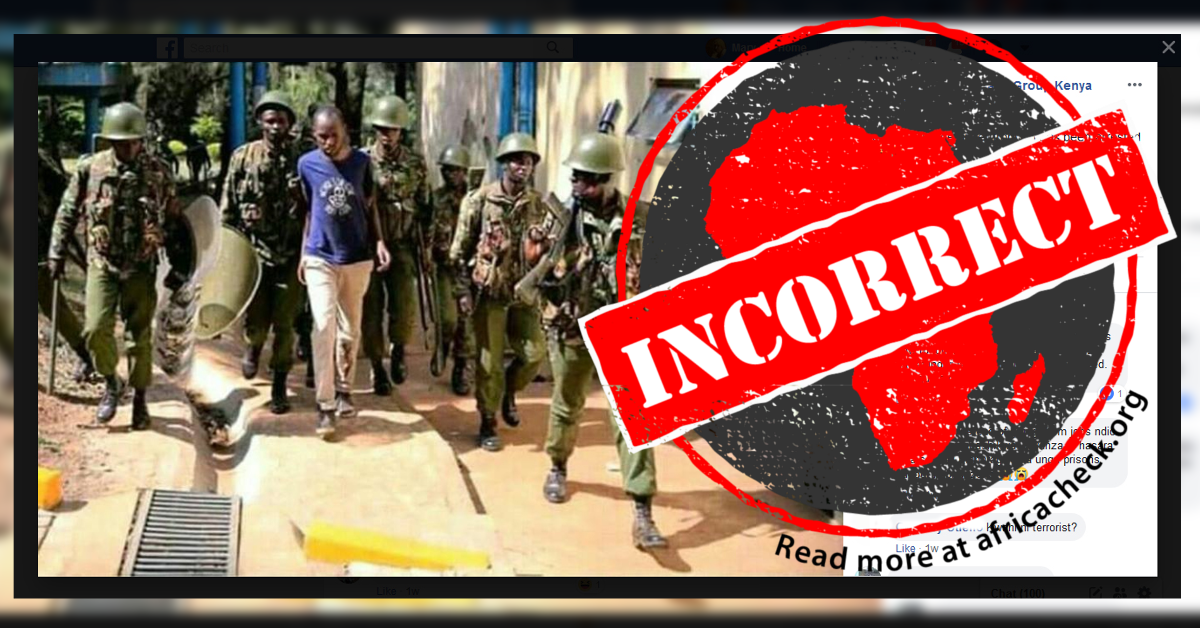HELB chief executive Charles Ringera then released a statement saying the board would seek the services of the director of public prosecutions and other agencies to enforce loan repayments.
“Default in loan repayment according to the HELB act is a criminal offence and therefore HELB can seek the intervention,” he said.
A few days later, reports went viral on social media claiming the crackdown on defaulters had begun. One user posted a photo supposedly showing police escorting an arrested HELB defaulter from Kenyatta University. It also appeared on another group page.
“The first HELB defaulter from KU has been arrested,” read the caption.

Image not of a HELB crackdown
A Google image search reveals that the image first came to light back in 2017. It was taken for Reuters by photojournalist Thomas Mukoya. It shows anti-riot police arresting a student at the University of Nairobi during protests for the release of Embakasi East MP Paul Ongili, popularly known as Babu Owino.
HELB denies arresting defaulters
Despite vowing to hunt down defaulters, the loans board tweeted that the reports were fake.
‼️ATTENTION ‼️
We wish to draw your attention to a series of social media posts doing the rounds alleging that HELB systems have been hacked or that police are arresting students who are HELB Beneficiaries. This is not true.
Treat this as FAKE NEWS! pic.twitter.com/woWe0UBZzA
— OFFICIAL HELB PAGE (@HELBpage) February 23, 2019
“We wish to draw your attention to a series of social media posts doing the rounds alleging that HELB systems have been hacked or that police are arresting students who are HELB Beneficiaries. This is not true. Treat this as FAKE NEWS!” it said. - Dancan Bwire (07/03/2019)
Republish our content for free
For publishers: what to do if your post is rated false
A fact-checker has rated your Facebook or Instagram post as “false”, “altered”, “partly false” or “missing context”. This could have serious consequences. What do you do?
Click on our guide for the steps you should follow.
Publishers guideAfrica Check teams up with Facebook
Africa Check is a partner in Meta's third-party fact-checking programme to help stop the spread of false information on social media.
The content we rate as “false” will be downgraded on Facebook and Instagram. This means fewer people will see it.
You can also help identify false information on Facebook. This guide explains how.


Add new comment